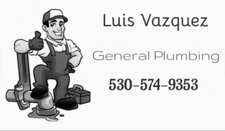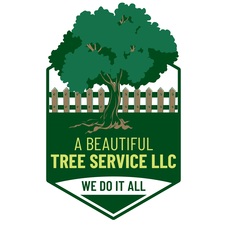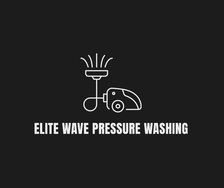
Get matched with top gas log pros in Williams, CA
Enter your zip and get matched with up to 5 pros
Need a pro for your gas log service project in Williams, CA?
Verified Reviews for Gas Log Service pros in Williams, CA
*The Angi rating for Gas Log Service companies in Williams, CA is a rating based on verified reviews from our community of homeowners who have used these pros to meet their Gas Log Service needs.
*The HomeAdvisor rating for Gas Log Service companies in Williams, CA is a rating based on verified reviews from our community of homeowners who have used these pros to meet their Gas Log Service needs.
Last update on January 17, 2026
Find Gas log pros in Williams

AppliancePartsPros.com
AppliancePartsPros.com
Since 1999, we've helped millions of do-it-yourselfers save money and fix their broken appliances quickly by providing quality appliance parts and free repair advice. We are only an online appliance parts retailer that offers a 365 day warranty and fast shipping. We also offer technical advice and diagnosis totally free 6 days a week. If you are interested in repairing your own appliance, please call us at 1-877-477-7278 or click live chat on our web site. We will help diagnose the problem and provide you with all the necessary information for the repair free of charge. It's better with the Pros!™ Avoid costly service calls - visit us at http://www.appliancepartspros.com
"Beware of shipping issues with this company. Ordered an ice maker installation kit on 10/10/25. Shipping was due no later than 10/20 according to company and FedEx tracking. FedEx tracking showed the package at their facility for 8 days without moving beginning on 10/15. Called FedEx 3 times. Each time they said they cannot find package and I have to contact shipper. Shipper has to make a claim, they will not mark it as lost. Called Appliance Parts Pros twice. Each time they say FedEx has to mark package lost before they will do anything. They also state they have to wait 14 days from them before doing anything because of their contract with FedEx. I don't care about their contract, I want what was ordered and paid for. Just going in circles with them and FedEX. If they shipped after 14 days it would be 22 days from that point, 32 days from the date of order if they shipped it that day. There was a deadline for installing this part before tenants arrive. They did not care, would not m"
Ron R on October 2025
Since 1999, we've helped millions of do-it-yourselfers save money and fix their broken appliances quickly by providing quality appliance parts and free repair advice. We are only an online appliance parts retailer that offers a 365 day warranty and fast shipping. We also offer technical advice and diagnosis totally free 6 days a week. If you are interested in repairing your own appliance, please call us at 1-877-477-7278 or click live chat on our web site. We will help diagnose the problem and provide you with all the necessary information for the repair free of charge. It's better with the Pros!™ Avoid costly service calls - visit us at http://www.appliancepartspros.com
"Beware of shipping issues with this company. Ordered an ice maker installation kit on 10/10/25. Shipping was due no later than 10/20 according to company and FedEx tracking. FedEx tracking showed the package at their facility for 8 days without moving beginning on 10/15. Called FedEx 3 times. Each time they said they cannot find package and I have to contact shipper. Shipper has to make a claim, they will not mark it as lost. Called Appliance Parts Pros twice. Each time they say FedEx has to mark package lost before they will do anything. They also state they have to wait 14 days from them before doing anything because of their contract with FedEx. I don't care about their contract, I want what was ordered and paid for. Just going in circles with them and FedEX. If they shipped after 14 days it would be 22 days from that point, 32 days from the date of order if they shipped it that day. There was a deadline for installing this part before tenants arrive. They did not care, would not m"
Ron R on October 2025

Pacific Debt Inc.
Pacific Debt Inc.
Pacific Debt Inc. has been in business for 13 years and are committed to getting you out of debt. Each customer has a personalized account manager for their case. There is no need to worry about getting passed around to different people to discuss your case; your case will be handled by the same person from start to finish. They are able to get to know each customer individually and know how to best assist them. Pacific Debt Inc. also focuses solely on debt settlement. Other companies in the industry also provide different types of services, but Pacific Debt Inc. specializes in debt settlement. Their goal aims at getting client out of debt within 2 to 4 years. Also, their minimum debt, $7,500, is lower than many companies in this industry and allows more customers to settle their debts. Pricing is based off the total enrolled debt a client enters the program with and generally, pricing is about 17-20% of their debt. Pacific Debt Inc. provides many services to their clients and we recommend them for the following reasons: A free, no-commitment consultation An A+ BBB rating A money-back guarantee AFCC accredited Debt free in 2 to 4 years
Pacific Debt Inc. has been in business for 13 years and are committed to getting you out of debt. Each customer has a personalized account manager for their case. There is no need to worry about getting passed around to different people to discuss your case; your case will be handled by the same person from start to finish. They are able to get to know each customer individually and know how to best assist them. Pacific Debt Inc. also focuses solely on debt settlement. Other companies in the industry also provide different types of services, but Pacific Debt Inc. specializes in debt settlement. Their goal aims at getting client out of debt within 2 to 4 years. Also, their minimum debt, $7,500, is lower than many companies in this industry and allows more customers to settle their debts. Pricing is based off the total enrolled debt a client enters the program with and generally, pricing is about 17-20% of their debt. Pacific Debt Inc. provides many services to their clients and we recommend them for the following reasons: A free, no-commitment consultation An A+ BBB rating A money-back guarantee AFCC accredited Debt free in 2 to 4 years
Custom Plumbing
Custom Plumbing
Professionalism, certified technicians, excellent customer service, friendly, respectful of others belongings and property,always staying up to date on technology and green building
Professionalism, certified technicians, excellent customer service, friendly, respectful of others belongings and property,always staying up to date on technology and green building

Ceramic Concept
Ceramic Concept
At the Ceramic Concepts studio, established in 1992, we are designers of hand-made tiles. Reproductions and custom designs from the 20’s and 30’s. Moorish tiles, Spanish tiles, Malibu tiles, Craftsman tiles as well as some Portuguese tile styles, we make decorative tiles with a specific skill in matching glaze colors. These would include fountain back splashes, decorative tile murals, fireplaces, swimming pools, kitchen inserts or murals, as well as bathroom decorative tiles with coordinated field tiles. Our studio also offers custom art work and development of custom designs and colors. We work with architects, designers and contractors to insure you get the most from using ceramic tiles. We believe in customer's satisfaction and stand behind our products 100%. We offer timely delivery and very competitive pricing...references are available upon request.
At the Ceramic Concepts studio, established in 1992, we are designers of hand-made tiles. Reproductions and custom designs from the 20’s and 30’s. Moorish tiles, Spanish tiles, Malibu tiles, Craftsman tiles as well as some Portuguese tile styles, we make decorative tiles with a specific skill in matching glaze colors. These would include fountain back splashes, decorative tile murals, fireplaces, swimming pools, kitchen inserts or murals, as well as bathroom decorative tiles with coordinated field tiles. Our studio also offers custom art work and development of custom designs and colors. We work with architects, designers and contractors to insure you get the most from using ceramic tiles. We believe in customer's satisfaction and stand behind our products 100%. We offer timely delivery and very competitive pricing...references are available upon request.
Orcino Tile
Orcino Tile
Small local one on one company. You get to deal with the owners and not a crew of possibly uninformed employees. All walls and counters are over mortar based substrates, which will make all the surfaces perfectly flat, plumb, and level for a superior installation to last the life of the house. Hardiebacker, (opted by many now days), on walls and counters will form to the shape and curves of the existing wall, also leaving walls out of plumb, which can lead to a very unprofessional finished product. We are very skilled with epoxy "stain proof" grouts that will never fade or discolor. Estimates are free unless the drive is extensive. Most work prior to jobsite can be done via email, and we are always available to answer questions
Small local one on one company. You get to deal with the owners and not a crew of possibly uninformed employees. All walls and counters are over mortar based substrates, which will make all the surfaces perfectly flat, plumb, and level for a superior installation to last the life of the house. Hardiebacker, (opted by many now days), on walls and counters will form to the shape and curves of the existing wall, also leaving walls out of plumb, which can lead to a very unprofessional finished product. We are very skilled with epoxy "stain proof" grouts that will never fade or discolor. Estimates are free unless the drive is extensive. Most work prior to jobsite can be done via email, and we are always available to answer questions
WALLACE & HINZ MANUFACTURE
WALLACE & HINZ MANUFACTURE
Since 1977 Wallace and Hinz has specialized in building fine bars for private homes and award winning restaurants. We provide handcrafted wall paneling, custom fireplaces, home theaters, libraries and studies. Home Owners, Designers and Contractors enjoy working with the W&H team and return often.
Since 1977 Wallace and Hinz has specialized in building fine bars for private homes and award winning restaurants. We provide handcrafted wall paneling, custom fireplaces, home theaters, libraries and studies. Home Owners, Designers and Contractors enjoy working with the W&H team and return often.
Absolute Chimney Cleaning
Absolute Chimney Cleaning
Absolute Chimney Cleaning and Handyman Services is your local choice for reliable, respectful and honest Chimney Cleaning, Chimney Sweeping, Minor Home Repairs and Handyman Services. The Big Bad Wolf couldn't blow down the Little Pig's Brick House, but wind, rain and time can erode your Chimney's mortar and integrity creating a hazard that puts your whole family in jeapordy. Sleep easy! Call Absolute Chimney Cleaning Today! Have one of our Clean and Respectful Chimney Sweeps inspect your chimney and give you peace of mind. We will thoroughly clean your entire chimney and provide you written assurance that your chimney is safe for winter. If repair is needed we do that too! We promise a clear explanation, a quality repair, and a fair price. Enjoy the warm glow of an evening fire with the peace of knowing your family is safe. Do you have a list of nagging home repairs piling up that you lack the time, tools or knowledge to perform? That's what Absolute Handyman Services are here for. Please give us a call today. One of our Clean and Respectful Techicians will come to your home at a time that is convenient for you! We will give you a clear and accurate assessment of the services required; a fair and easily understandable explanation of all charges and, upon your approval, a QUALITY, GUARANTEED repair. Your satisfaction is our top priority. Our goal is your smile. Protect your investment and your family. Call Absolute Chimney Cleaning and Handyman Services today for prompt service today.
Absolute Chimney Cleaning and Handyman Services is your local choice for reliable, respectful and honest Chimney Cleaning, Chimney Sweeping, Minor Home Repairs and Handyman Services. The Big Bad Wolf couldn't blow down the Little Pig's Brick House, but wind, rain and time can erode your Chimney's mortar and integrity creating a hazard that puts your whole family in jeapordy. Sleep easy! Call Absolute Chimney Cleaning Today! Have one of our Clean and Respectful Chimney Sweeps inspect your chimney and give you peace of mind. We will thoroughly clean your entire chimney and provide you written assurance that your chimney is safe for winter. If repair is needed we do that too! We promise a clear explanation, a quality repair, and a fair price. Enjoy the warm glow of an evening fire with the peace of knowing your family is safe. Do you have a list of nagging home repairs piling up that you lack the time, tools or knowledge to perform? That's what Absolute Handyman Services are here for. Please give us a call today. One of our Clean and Respectful Techicians will come to your home at a time that is convenient for you! We will give you a clear and accurate assessment of the services required; a fair and easily understandable explanation of all charges and, upon your approval, a QUALITY, GUARANTEED repair. Your satisfaction is our top priority. Our goal is your smile. Protect your investment and your family. Call Absolute Chimney Cleaning and Handyman Services today for prompt service today.
BLACK MAGIC CHIMNEY SWEEP
BLACK MAGIC CHIMNEY SWEEP
We offer :Chimney Cleaning, Chimney Service, Dryer Vent Cleaning, Chimney Sweep.Areas served: Santa Ynez, Santa Barbara, Solbank & Lompoc Counties.
We offer :Chimney Cleaning, Chimney Service, Dryer Vent Cleaning, Chimney Sweep.Areas served: Santa Ynez, Santa Barbara, Solbank & Lompoc Counties.
AMAZING HANDYMAN SERVICES
AMAZING HANDYMAN SERVICES
As a general contracting company, we service home and businesses.
As a general contracting company, we service home and businesses.
See It N 3D Design & Technical Illustrations
See It N 3D Design & Technical Illustrations
The end product will be your Blue Prints, Floor Plans, Notes or drawings (non-technical nor artistic required) designed and converted digitally into 3D (Isometric) full color digital images. (animation available). The purpose and value of my service is convey ideas and purpose of my Clients (Architects, Designers, Artists, Contractors, Home Owners etc.) into images from 8.5 to 11" to Large format such as Poster Board or Bill Board size for advertisement or demonstration, Video 3D animation also available. SEEIT N 3D before you build it SAVE $ and TIME. My illustrations are the last step before the project becomes a reality. I have saved my clients thousands of dollars by allowing a Virtual Reality Preview of the end product/ project using the proposed materials, colors and textures. Email for a free consultation, include samples for a quote.
The end product will be your Blue Prints, Floor Plans, Notes or drawings (non-technical nor artistic required) designed and converted digitally into 3D (Isometric) full color digital images. (animation available). The purpose and value of my service is convey ideas and purpose of my Clients (Architects, Designers, Artists, Contractors, Home Owners etc.) into images from 8.5 to 11" to Large format such as Poster Board or Bill Board size for advertisement or demonstration, Video 3D animation also available. SEEIT N 3D before you build it SAVE $ and TIME. My illustrations are the last step before the project becomes a reality. I have saved my clients thousands of dollars by allowing a Virtual Reality Preview of the end product/ project using the proposed materials, colors and textures. Email for a free consultation, include samples for a quote.
The homeowners guide to home care is here
From average costs to expert advice, get all the answers you need to get your job done.

Did your HVAC pro recently tell you that you may need a new disconnect? If so, start budgeting for the cost to install an AC disconnect here.

Nothing’s more luxurious than your own hot tub after a long day. Maximize your enjoyment by hiring an electrician to wire your hot tub properly.

If you need electrical work done, you’ve probably been asking, “How much does an electrician cost?” We’ll break down all the cost factors for you here.

Discover the various types of circuit breakers, their unique features, pros and cons, and the best applications for each in this comprehensive guide.

Learn how to find wires in your walls so you can avoid danger the next time you need to drill holes in a wall for a DIY project.

Discover how to upgrade your electrical panel for added convenience and to help increase the safety of the electrical system in your home.
- Kitchen And Bath Remodeling in Williams
- Plumbing in Williams
- Dumpster Rental in Williams
- Concrete Repair in Williams
- Painting in Williams
- Windows in Williams
- Swimming Pools in Williams
- Electrical in Williams
- Locksmiths in Williams
- Cleaning in Williams
- Lawn And Yard Work in Williams
- Fencing in Williams
- Mailbox Repair in Williams
- Septic Tank in Williams
- Excavating in Williams
- Foundation Repair in Williams
- Garbage Collection in Williams
- Carpet Cleaning in Williams
- Tree Service in Williams
- Handyman Service in Williams
- Landscaping in Williams
- Mulch And Topsoil in Williams
- Chimney Sweep in Williams
- Home Builders in Williams
- Mold Testing And Remediation in Williams
- Stone And Gravel in Williams
- Garage Builders in Williams
- Computer Repair in Williams
- Moving in Williams
- Concrete Driveways in Williams
- 🌱 "Mow a small front yard"
- 🛠 "Fix a leaking pipe under the sink"
- 🏠 "Repair shingles on an asphalt roof"




